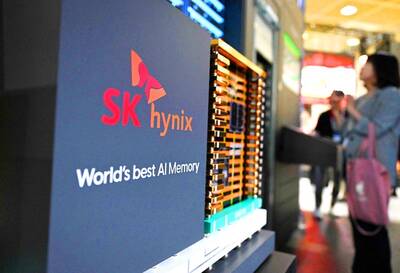The consumer price index (CPI) rose 1.61 percent last month from a year earlier, bringing the headline rate of inflation to 1.93 percent for last year, in line with a previous forecast by the government, the Directorate-General of Budget, Accounting and Statistics (DGBAS) said yesterday.
Last year’s headline rate of inflation marked the highest level since 2008, but was still under the 2 percent threshold set by the government.
“Although typhoons and heavy rains raised vegetable and fruit prices between July and September, the pace of the rise slowed in the following months,” DGBAS section chief Wang Shu-chuan (王淑娟) told a press conference.
This, as well as the slowing economic sentiment that dragged down momentum in private consumption, kept full-year growth in headline inflation at a level under 2 percent, Wang added.
However, food costs increased 4.16 percent last year, marking the fastest growth among the seven main sectors surveyed by the DGBAS, and the highest level in four years, the agency said in its monthly report.
The annual growth in prices of non-durable goods also reached its highest level since 2008, rising 4.46 percent last year, which was a major factor affecting consumers.
For last month, the 1.61 percent year-on-year growth of consumer prices was faster than the 1.59 percent recorded in November last year, the report’s data showed.
Growth in core CPI — which excludes vegetable, fruit and energy prices — also expanded to 1.09 percent last month from a year ago, its highest level since January last year, leading to uncertainty over consumer prices for this year.
Tony Phoo (符銘財), a Taipei-based economist at Standard Chartered Bank, also said the imminent hikes in medical fees and expenses, as well as the possibility the government will further raise both fuel and electricity prices, could impact the rate of inflation.
“The government expects headline inflation to slow considerably to a mere 1.27 percent growth this year, which we believe will be rather challenging to achieve,” Phoo said in a research note.
The wholesale price index (WPI) dropped 3.96 percent year-on-year last month, with the index sliding 1.16 percent last year, the DGBAS’ report said.

Intel Corp chief executive officer Lip-Bu Tan (陳立武) is expected to meet with Taiwanese suppliers next month in conjunction with the opening of the Computex Taipei trade show, supply chain sources said on Monday. The visit, the first for Tan to Taiwan since assuming his new post last month, would be aimed at enhancing Intel’s ties with suppliers in Taiwan as he attempts to help turn around the struggling US chipmaker, the sources said. Tan is to hold a banquet to celebrate Intel’s 40-year presence in Taiwan before Computex opens on May 20 and invite dozens of Taiwanese suppliers to exchange views

Application-specific integrated circuit designer Faraday Technology Corp (智原) yesterday said that although revenue this quarter would decline 30 percent from last quarter, it retained its full-year forecast of revenue growth of 100 percent. The company attributed the quarterly drop to a slowdown in customers’ production of chips using Faraday’s advanced packaging technology. The company is still confident about its revenue growth this year, given its strong “design-win” — or the projects it won to help customers design their chips, Faraday president Steve Wang (王國雍) told an online earnings conference. “The design-win this year is better than we expected. We believe we will win

Power supply and electronic components maker Delta Electronics Inc (台達電) yesterday said it plans to ship its new 1 megawatt charging systems for electric trucks and buses in the first half of next year at the earliest. The new charging piles, which deliver up to 1 megawatt of charging power, are designed for heavy-duty electric vehicles, and support a maximum current of 1,500 amperes and output of 1,250 volts, Delta said in a news release. “If everything goes smoothly, we could begin shipping those new charging systems as early as in the first half of next year,” a company official said. The new

SK Hynix Inc warned of increased volatility in the second half of this year despite resilient demand for artificial intelligence (AI) memory chips from big tech providers, reflecting the uncertainty surrounding US tariffs. The company reported a better-than-projected 158 percent jump in March-quarter operating income, propelled in part by stockpiling ahead of US President Donald Trump’s tariffs. SK Hynix stuck with a forecast for a doubling in demand for the high-bandwidth memory (HBM) essential to Nvidia Corp’s AI accelerators, which in turn drive giant data centers built by the likes of Microsoft Corp and Amazon.com Inc. That SK Hynix is maintaining its